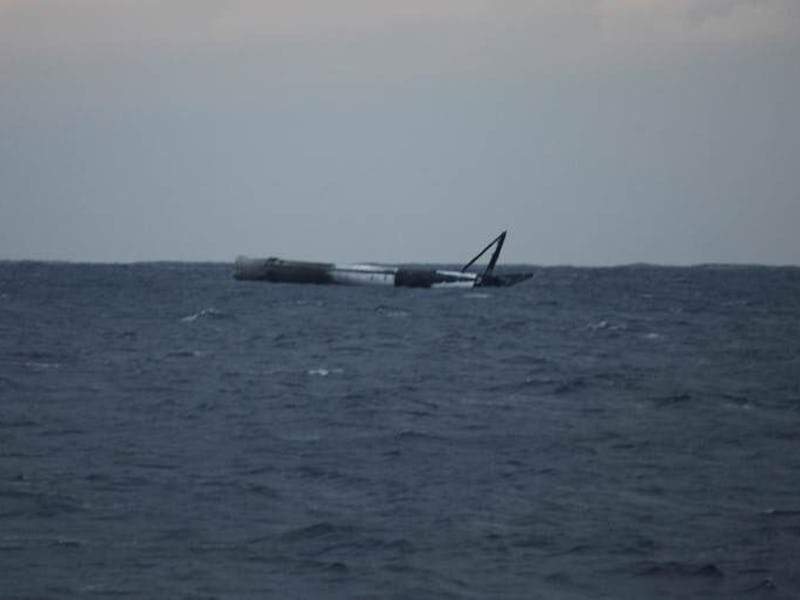The "Amazing" Reason a SpaceX Rocket Was Floating in the Atlantic Ocean

SpaceX has pulled off something spectacular. After Wednesday’s Falcon 9 rocket launch at Florida’s Cape Canaveral Air Force Station, the company tried something bold. Rather than landing the first stage booster on a ship in the middle of the ocean like it normally does, the company decided to land it in the Atlantic itself.
“This rocket was meant to test very high retrothrust landing in water so it didn’t hurt the droneship, but amazingly it has survived,” SpaceX CEO Elon stated on his Twitter page. “We will try to tow it back to shore.”
The rocket, the company’s second launch of this year, delivered a GovSat-1 satellite into what’s known as geostationary transfer orbit. The launch took place just at the start of the window, which opened at 4:25 p.m. Eastern tim. The Falcon 9 used for the launch was reused from an earlier mission, but the company decided not to recover the rocket this time around to test the unique landing.
It seems SpaceX is now landing rockets back on Earth in one piece even when it doesn’t mean to.
Brady Kenniston, a rocket launch photographer in Bay City, Michigan, developed a simulation of the rocket landing in a video game called Kerbal Space Program.
Falcon 9 recoveries are important to SpaceX because reusable rockets help drive prices down. The process means saving millions of dollars on building new rockets each time for space launches, leaving refueling as the biggest equipment cost at around $200,000 to $300,000. It also means SpaceX can plan for future refueling stations away from the Florida base, like on other moons.
These launches are just the beginning. The company is setting its sights further afield with a manned mission to Mars pencilled in for 2024, using four Falcon Heavy rockets. These rockets are huge: With more than 5 million pounds of thrust at liftoff, the company touts it as the most powerful rocket in the world. All eyes are on SpaceX for next Tuesday, as the Falcon Heavy gears up for its big inaugural launch from Pad 39A.